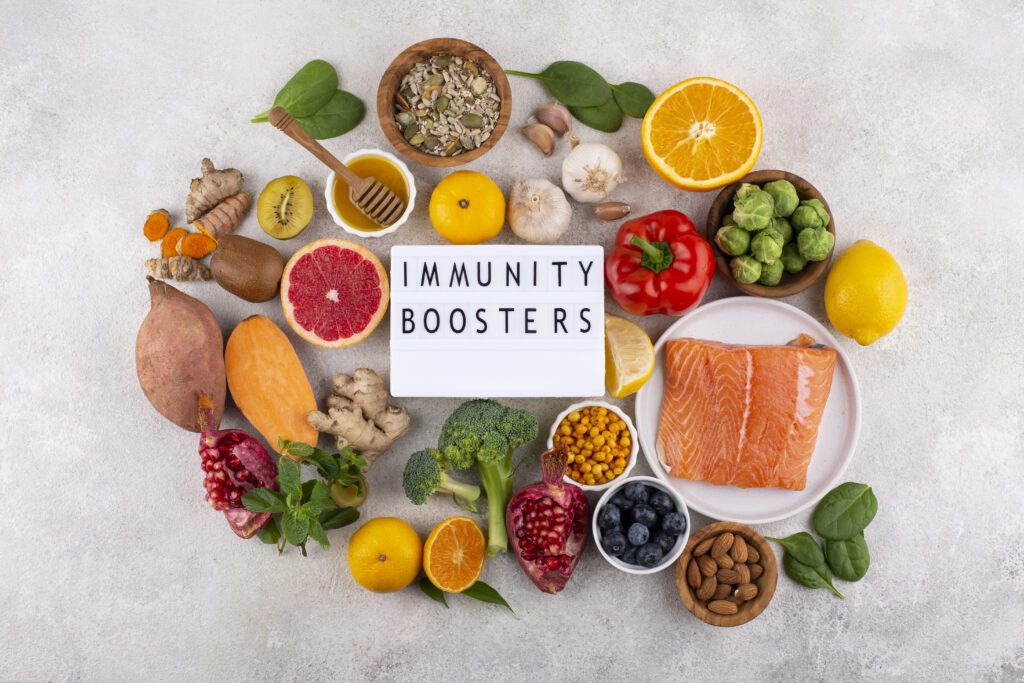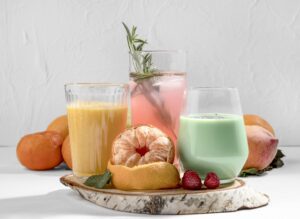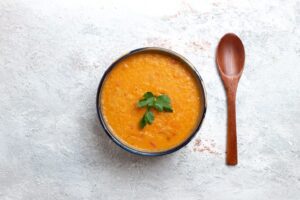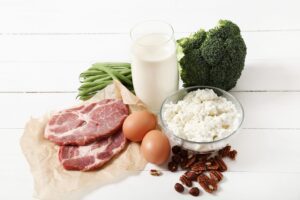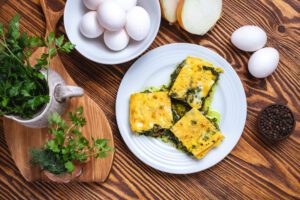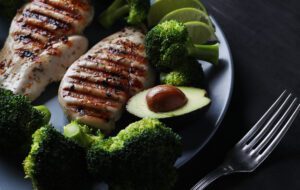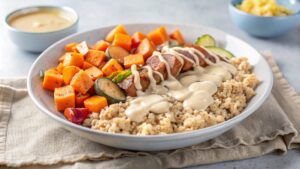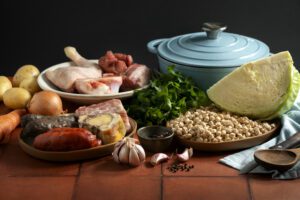As soon as one hears the name of immunotherapy, many people have a question in their minds: does it work, and does an immunotherapy diet play any role in this treatment? A advanced treatment called immunotherapy boosts the body’s defenses against harmful cells. However, an immunotherapy diet is necessary since the body receives additional stress during this treatment and needs the right nutritional support.
During immunotherapy treatment, are you worried about your nutrition and health? A well-planned approach that can help you with “ideal planning for an immunotherapy diet” will be discussed in this post. You’ll understand how a healthy, nutrient-rich diet tailored to an immunotherapy diet can speed up recovery and reduce treatment side effects.
Table of Contents
Understanding Immunotherapy and Its Dietary Impact
An immunotherapy diet can significantly influence the success of this treatment. Immunotherapy trains your immune system which helps fight cancer cells or infection. This therapy is different from chemotherapy and radiation therapy, the main focus of this therapy is to strengthen your immune cells.
How does immunotherapy work?
- Checkpoint Inhibitors: help break down barriers to the immune system.
- CAR T-Cell Therapy: teaches to target cancer cells by modifying T-cells.
- Monoclonal Antibodies: improve signals of the immune system.
Immunotherapy has many side effects such as fatigue, loss of appetite, nausea, and inflammation. This makes a proper diet critical.
Diet’s Role in Immunotherapy
A balanced diet maintains the body’s energy levels and helps repair the immune system. A poor diet can cause worse side effects, but a planned meal can give you better results.
Key Nutrients Essential for Immunotherapy
Making the correct nutrient choices may change your diet. Here we focus on nutrients that are important for immunotherapy patients and are the foundation of a successful immunotherapy diet.
1. Proteins
Proteins are essential for the body’s repair mechanism and for building immune cells. Proteins help to recover from side effects of treatment, such as tissue damage.
Sources of Proteins:
- lean meats such as chicken and turkey
- eggs
- plant-based options such as tofu and lentils
- dairy products such as yogurt and milk
2. Antioxidants
Antioxidants reduce oxidative stress that occurs during treatment. They protect cells from damage by neutralizing free radicals.
Antioxidant-Rich Foods:
- Blueberries and strawberries
- Dark leafy greens like spinach
- Nuts and seeds
3. Omega-3 Fatty Acids
These essential fats reduce inflammation and improve brain function and overall health.
Sources of Omega-3s:
- Salmon, mackerel
- Flaxseeds and walnuts
4. Vitamins and Minerals
- Vitamin C: For immune boost. Found in oranges and bell peppers.
- Vitamin D: For bone strength. Found in fortified cereals and sunlight exposure.
- Zinc: Found in nuts and seeds, essential for repair processes.
Dietary Challenges During Immunotherapy
Diet-related challenges are common during immunotherapy, but they can be managed effectively with a well-structured immunotherapy diet.
1. Loss of Appetite
- This is a major challenge.
- Small, frequent meals are helpful. Soups and smoothies are easy-to-consume options.
2. Digestive Issues
- Constipation: High-fiber foods such as oatmeal and apples are helpful.
- Diarrhea: Plain rice and boiled potatoes are the best options.
3. Food Allergies or Sensitivities
Some foods may not suit your system during treatment. Introducing foods slowly and keeping a food journal will be helpful.
Meal Planning Strategies for Immunotherapy

Now let’s talk about meal planning strategies that will make your treatment journey smooth.
1. Small, Frequent Meals
Instead of having a large meal all at once, it is beneficial to have 5-6 small meals a day.
- Include a protein shake and fruits in breakfast.
- It is best to include nuts and seeds in snacks.
2. Food Preparation Tips
- Take out time for meal prepping on a weekend.
- Store ready-to-eat items such as energy bars and soups.
3. Hydration
Regular consumption of water and herbal teas will speed up your recovery. Electrolyte-rich drinks such as coconut water are also beneficial.
Real-Life Case Study
A 45-year-old breast cancer patient who was undergoing immunotherapy followed a diet plan that was rich in protein and omega-3. Her energy levels were very low at first, but after a structured diet she saw significant improvement in her symptoms.
Meal Plan:
- Breakfast: Scrambled eggs with spinach
- Lunch: Grilled chicken salad with olive oil dressing
- Dinner: Steamed fish with brown rice
Foods to Include and Avoid
An immunotherapy diet requires understanding the right foods to eat and which ones to avoid:
Foods to Include
- Fresh fruits and vegetables
- Lean proteins like chicken and tofu
- Whole grains like quinoa and oats
Foods to Avoid
- Processed meats
- Sugary drinks and desserts
- Alcohol
Practical Meal Plan Suggestions

Reduce your stress by making a weekly immunotherapy diet meal plan with ideas like:
Breakfast Ideas
- Greek yogurt with chia seeds
- Whole-grain toast with avocado
Lunch Ideas
- Quinoa salad with roasted veggies
- Grilled chicken wrap
Dinner Ideas
- Lentil soup with steamed broccoli
- Baked salmon with mashed sweet potatoes
Snack Ideas
- Almonds and walnuts
- Hummus with carrot sticks
Lifestyle Tips to Complement Meal Planning
- Moderate Exercise: Yoga and light stretching exercises are helpful.
- Stress Management: Follow Meditation and deep breathing practices.
- Adequate Sleep: Take at least 7-8 hours of sleep.
Conclusion
Immunotherapy can be a challenging journey, but with the right immunotherapy diet and meal plan, your recovery process can be fast and smooth. Understand your body’s signals, seek professional advice, and stick to a well-structured immunotherapy diet for the best results.
FAQs
What is immunotherapy and what is the role of diet?
Immunotherapy is a therapy that improves the body’s immunity against cancer. Your energy levels and immune cells are improved by diet.
Are processed foods allowed?
It is better to avoid processed foods as they can worsen the side effects of treatment.
How to control nausea?
Light and bland foods like crackers and ginger tea are helpful.
Should I take supplements?
Avoid taking supplements without a doctor’s advice.
What is the role of hydration?
Hydration reduces fatigue and improves overall health.

